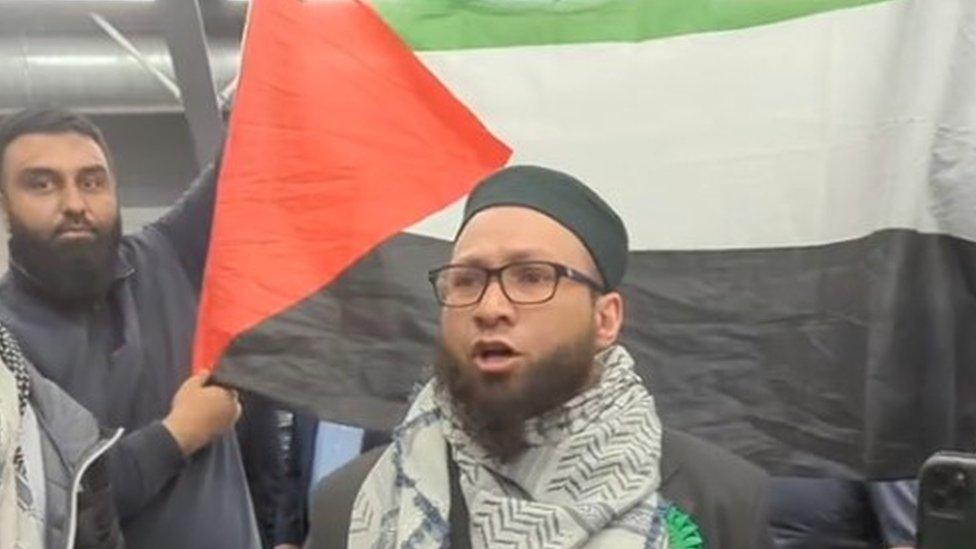Greens deputy leader 'racially abused on holiday'
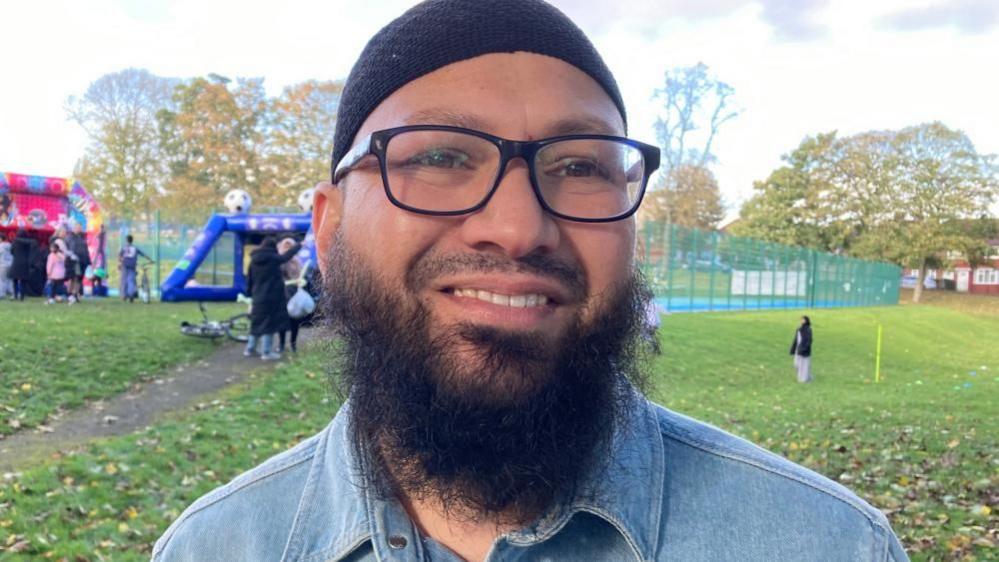
Mothin Ali was elected as a Leeds city councillor in May 2024 and is now joint deputy leader of the Green Party nationally
- Published
The newly elected joint deputy leader of the Green Party has revealed he and his family were racially abused while on holiday in Norfolk.
Mothin Ali, who took on his new role in the party last week, and who is also a Green councillor for Gipton and Harehills on Leeds City Council, said the abuse happened as he and his children were on Cromer beach this summer.
Mr Ali, who was born and raised in Sheffield, said: "We were having just real wholesome family fun and while we were wading in the water we were looking for some interesting rocks.
"The next thing I hear is, 'get out of our country', and I look up and there's beer bottles and glasses - those plastic cups - being thrown over the pier."
Mr Ali said as soon as the abuse started, he gathered his family together and they walked away.
"We went to pack up our stuff to leave, but as we were doing that we saw the people who were shouting abuse from the top of the pier following us down the promenade," he said.
"From there, it got even more abusive. They were using a lot more racist slurs and one or two of them pulled their trousers down at my children."
Mr Ali, a Muslim man of Bangladeshi descent, who moved to Leeds in 2000 and who, alongside his political work, teaches permaculture, said he believed the political environment in the last few years had shifted, with some people feeling empowered to be abusive.
"We're seeing people who are going from being online primarily to actually being out and open," he said.
"This was what it was like when I was growing up, but we don't want a return to that sort of toxicity.
"We have to make a positive message and we have to turn that tide of hate."
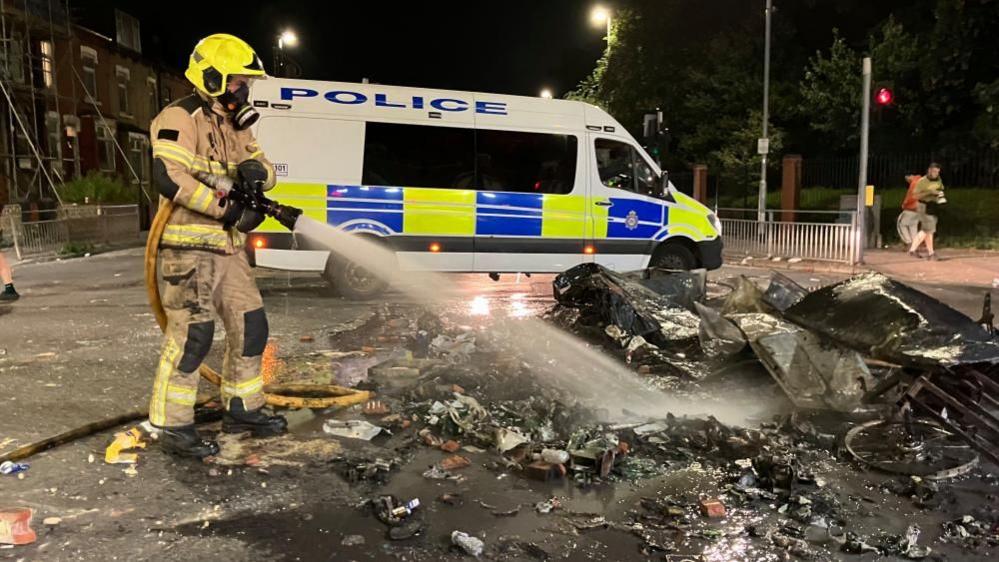
Harehills saw scenes of violence in July 2024
Back in Leeds now, Mr Ali said he hoped the response of his city council ward to the violence it experienced last year could prove to be a model for the whole country.
On 18 July 2024, a bus was torched and a police car was flipped on its side as hundreds of people took to the streets of Harehills, with 76 people later arrested in connection with the incident.
Mr Ali said work which had been carried out since to bring the community together had fostered a sense of ownership and empowerment among local residents.
"We organised an event called the City of Belonging where we brought in about 200 people from the community, not necessarily community leaders but ordinary members of the community from all backgrounds," he explained.
"We had open and honest discussions about what our problems were," he said.
"But Harehills and Gipton, they both have a lot of issues that need resolving and they're not going to be resolved overnight."
However, Mr Ali said he believed the people in his ward had "hope".
"If we can transfer that message out, not only will we be building our party base but we'll also be building a positive movement for this country," he said.
"We transferred members from the community to become activists and people became more politically engaged.
"That's one of the things that's often said about the British public - that we're apathetic. But we're not really apathetic. We're disillusioned by the two-party system, and that's not the same as apathy."
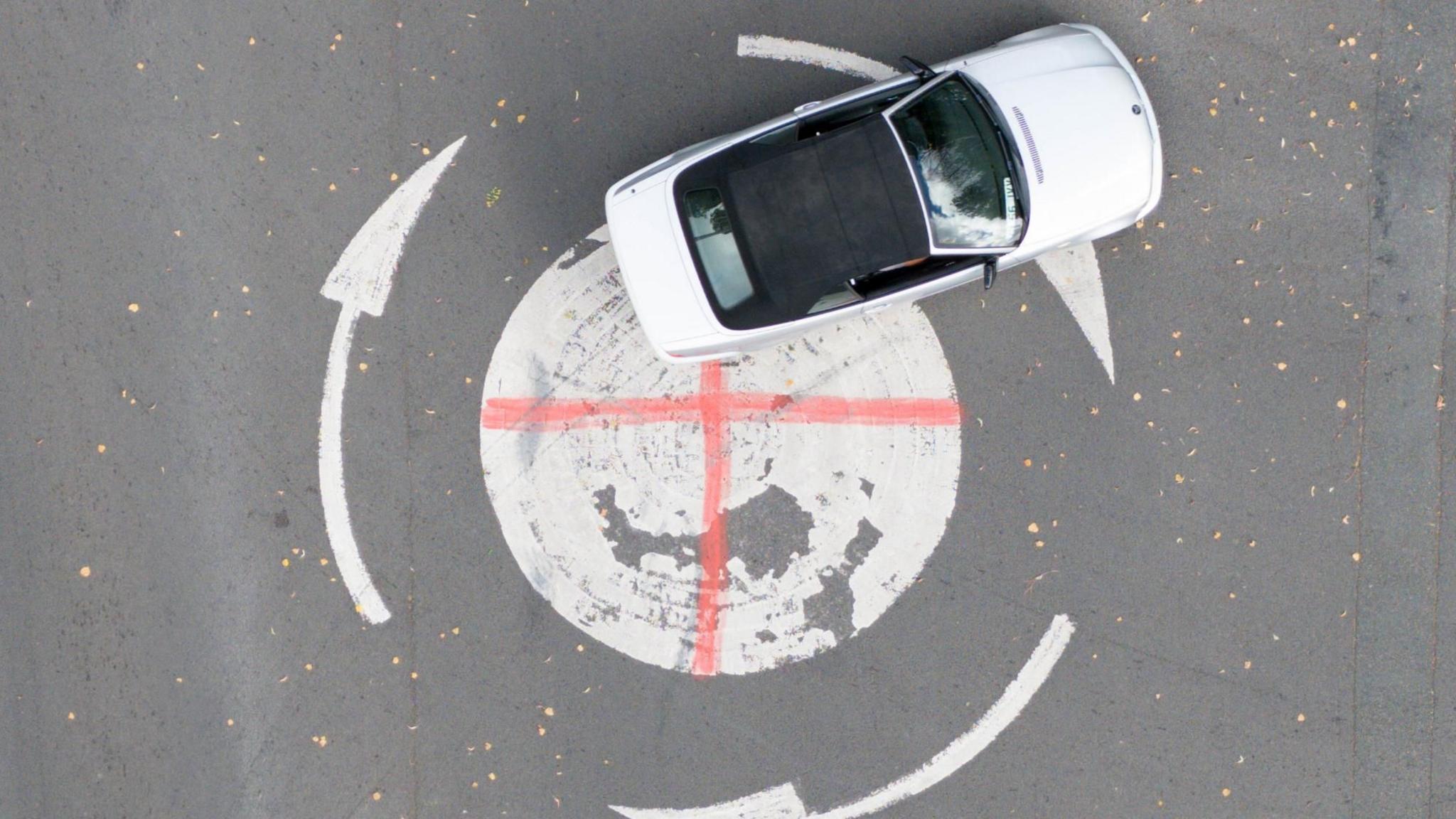
Mr Ali asked "what change does that make for people?" about the spate of St George's flags appearing across the country
Mr Ali said he believed poverty was the driving factor behind what he saw as an increase in violence and racial abuse.
"People are struggling, and because they're struggling they're desperate," he said.
"I get calls regularly from people who are struggling to feed their children, keep their houses warm, suffering from homelessness.
"We have to improve their lives so they're not looking for easy answers and scapegoats."
Meanwhile, Mr Ali said the recent phenomenon of St George's flags and union jack flags appearing in cities, towns and villages across England was a sign of a national symbol being "weaponised".
"What it's saying is, there's some people who will put the flag up and they're the ones who belong - and everyone else who doesn't somehow doesn't belong. That narrative has to change.
"That is our symbol. It belongs to us all. But it has to be inclusive. It can't be used as a tool of weaponisation."
He added: "Sticking a flag on a roundabout or a lamppost, what change does that make for people?
"When we work together, we look out for each other and come together as communities. That's true patriotism."
Get in touch
Tell us which stories we should cover in Yorkshire
Listen to highlights from West Yorkshire on BBC Sounds, catch up with the latest episode of Look North.
Related stories
- Published18 July
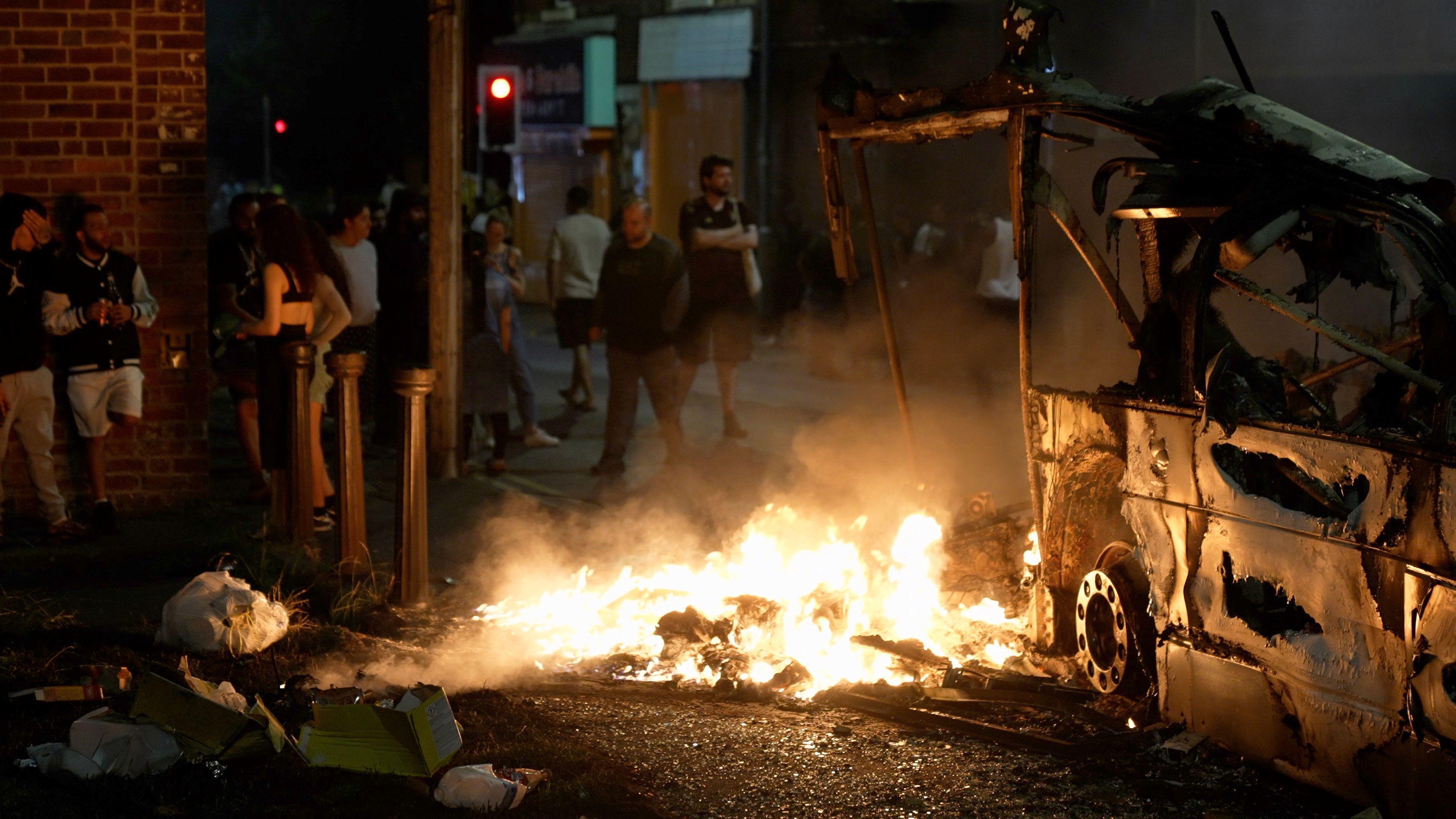
- Published2 September
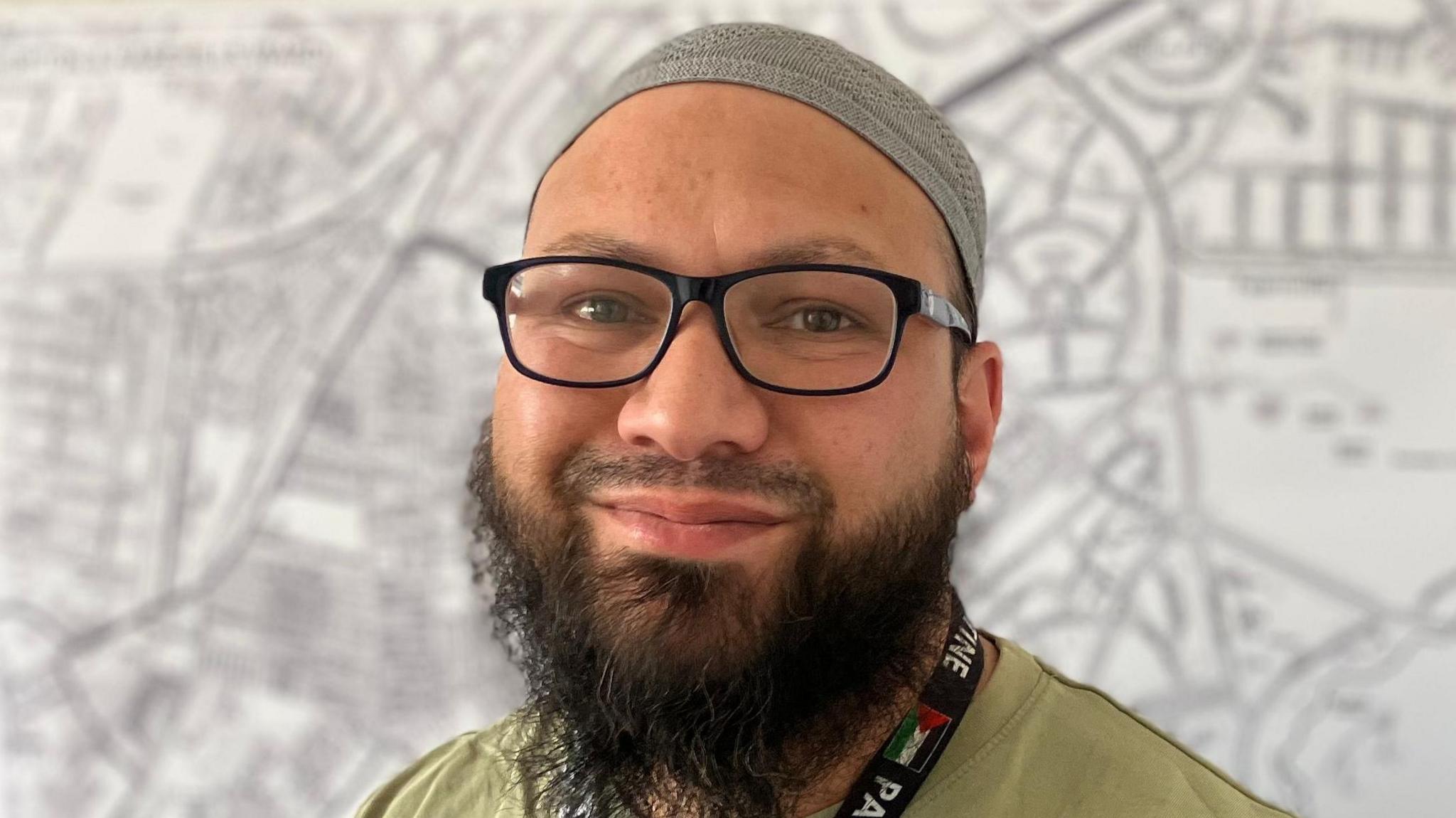
- Published7 May 2024
